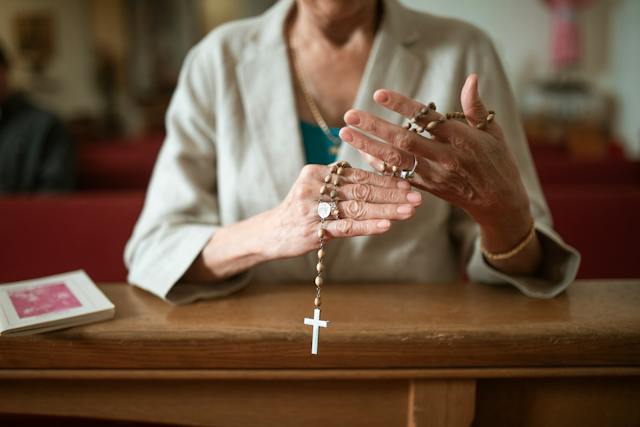5 Ways The Treatment of Christians Differs Across The World

The way Christians are treated varies greatly around the world, which is indicative of the various cultural, political, and religious circumstances in which different groups live out their religion. Gaining an understanding of these distinctions is crucial to comprehending the complex issues that Christians encounter globally.
Here you explore five different ways that Christians are treated differently across the globe in this inquiry, which sheds insight into the complexities of religious dynamics and the range of experiences that Christian communities have.
5 Ways The Treatment of Christians Differs Across The World
State-Sponsored Persecution
State-sponsored persecution of Christians is one prominent way that the treatment of Christians varies across the world. Governments in certain areas deliberately discriminate against Christian populations and impose restrictions on their freedom of religion.
Church closures, the implementation of restrictive legislation, and restrictions on religious activity are only a few examples of the many ways that the state can prosecute its citizens. Governments willfully using their power to stifle Christian sentiments can vary in intensity from mild prejudice to outright repression.
Examining the intricate interactions between political authority, religious identity, and the legal structures that influence Christians’ day-to-day lives in a given state is necessary to comprehend this kind of persecution.
Cultural and Social Attitudes
The way Christians are viewed in various places is greatly influenced by cultural and societal views. Christians are marginalized in certain communities because of ingrained cultural prejudices, which leads to discrimination and social exclusion.
Christians are often treated in historical circumstances when religious minorities are seen as outsiders or dangers to established cultural standards. Deciphering the subtleties of social and cultural attitudes is essential to understanding the complexities of the difficulties Christians encounter daily.
This kind of persecution affects social interactions, career prospects, and general social integration. It also creates an atmosphere in which Christians can encounter animosity based on cultural stereotypes.
Levels of Legal Protections
Christians are also treated differently when it comes to the legal safeguards that are granted to religious minorities. Strong legal systems provide religious freedom in several nations, enabling Christians to profess their religion without fear of retaliation publicly.
On the other hand, Christians could be more open to harassment and discrimination in areas with weak or nonexistent legal safeguards. Analyzing the degree of legal protection afforded to Christians in a particular jurisdiction gives insight into how well the rule of law protects their rights.
It emphasizes how crucial legal frameworks are to the experiences of Christian communities, affecting their freedom to practice their religion and engage in public life without fear of retaliation.
Interfaith Relations and Dialogue
Interfaith connections and discourse within a given community have a crucial role in determining how Christians are treated internationally. Christians can find a more accepting and tolerant atmosphere in areas where interfaith peace is actively promoted.
On the other hand, because of religious rivalry, Christians can face difficulties and prejudice in places where there are interfaith conflicts. Understanding the intricacies of religious cooperation and how it affects how Christians are treated can be gained by looking at interfaith relations.
It highlights how crucial it is to promote communication, tolerance, and respect across other religious groups to provide an environment in which Christians can practice their religion without worrying about hostility.
Economic Opportunities and Social Integration
Regarding social integration and economic prospects, Christians are treated differently as well. Because of their religious identity, Christians can experience economic marginalization in certain communities, having less access to jobs, education, and business opportunities.
On the other hand, Christians could integrate more socially and economically in areas where cultural systems value inclusion. Analyzing the differences in access to possibilities for employment illuminates how religious identification interacts with more general socioeconomic variables, influencing the general well-being and standing of Christian groups in a particular community.
It emphasizes how crucial it is to address economic inequalities to guarantee that Christians, along with all other religious groups, have equal access to opportunities and advantages in society.
Conclusion
The way Christians are treated worldwide is a complicated and varied phenomenon that is influenced by a wide range of variables. Christians’ experiences are shaped by a wide range of factors, including interfaith interactions, legislative safeguards, cultural views, state-sponsored persecution, and economic prospects.
Gaining an understanding of these differences is essential to raising awareness and promoting the rights and dignity of Christian communities across the world. Societies can endeavor to create conditions that support religious freedom, equality, and the coexistence of multiple religious identities by cultivating a sophisticated understanding of how Christians are treated.
Follow Top and Trending on Google News and receive the latest alerts and the main news about apps, technology, beauty, entertainment, and all the top 10 related posts.
